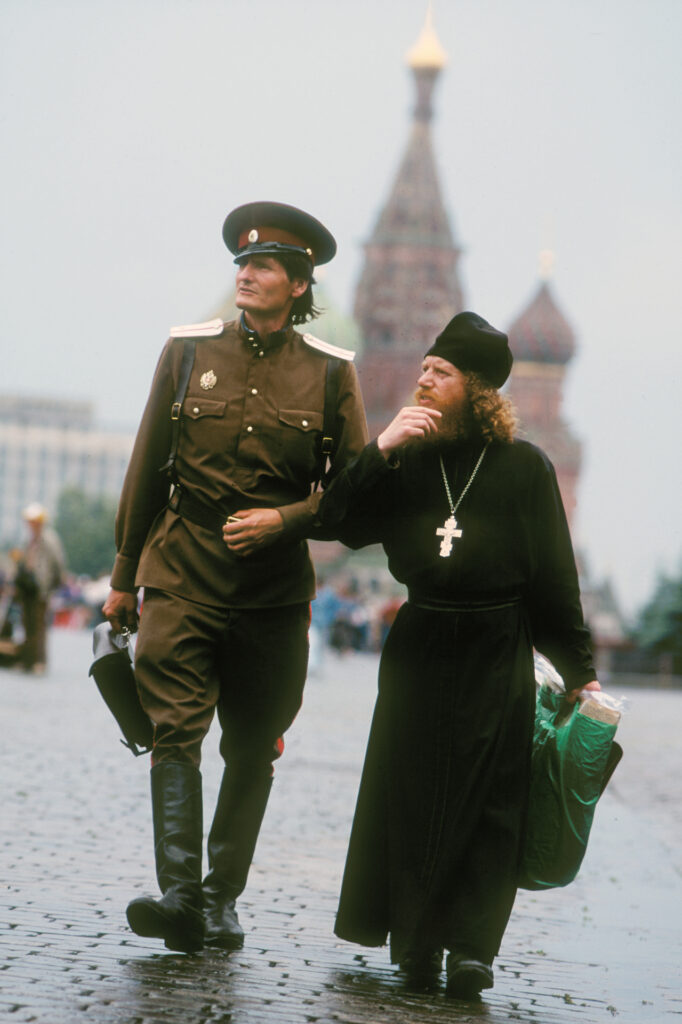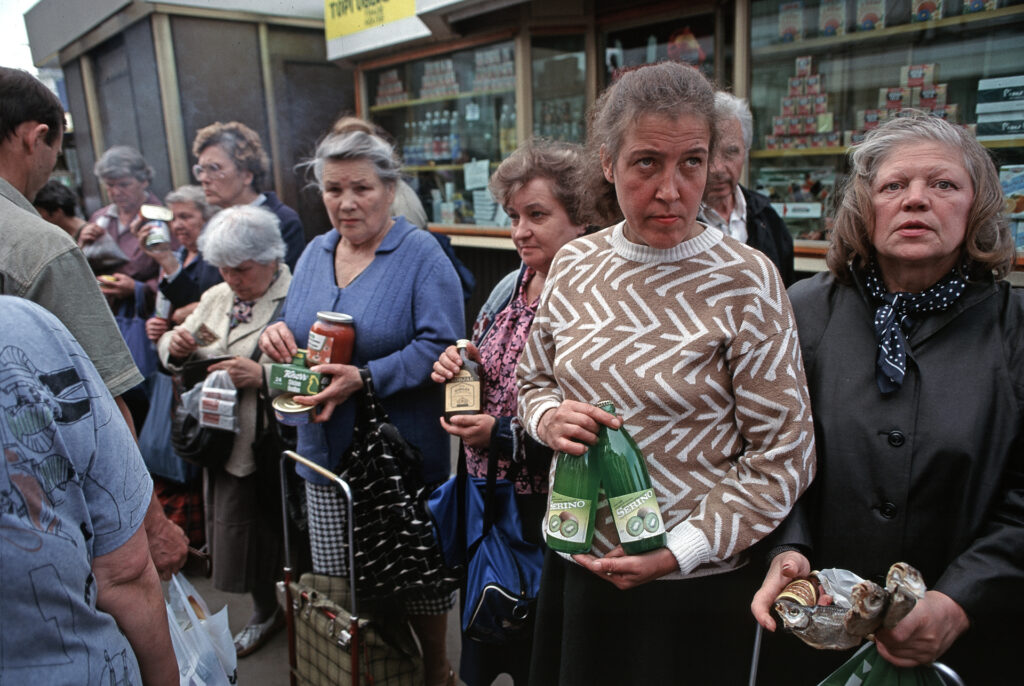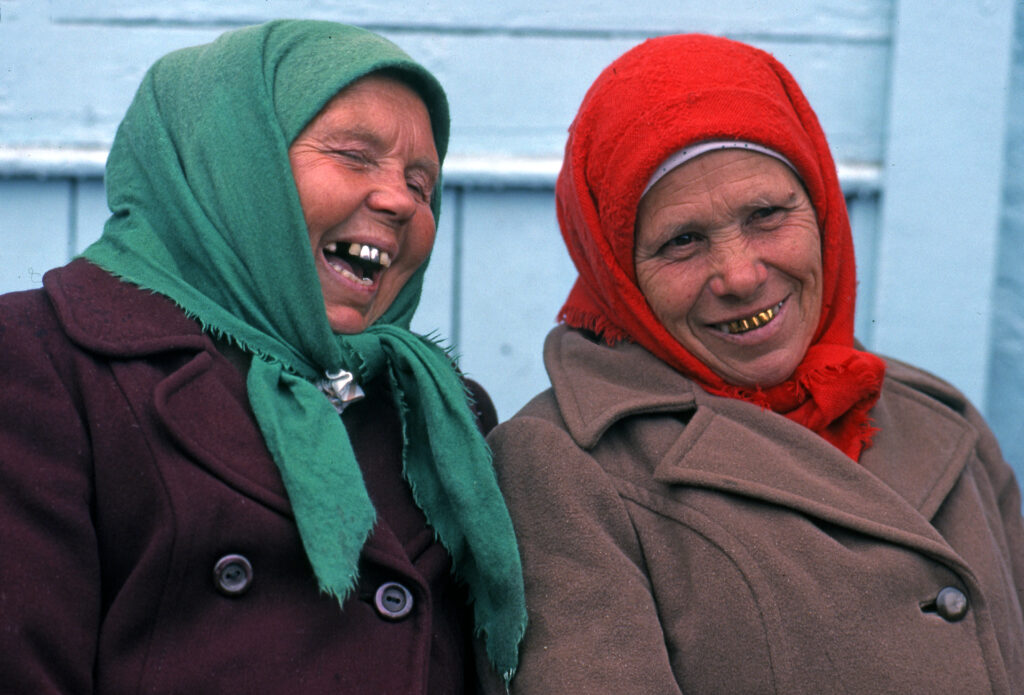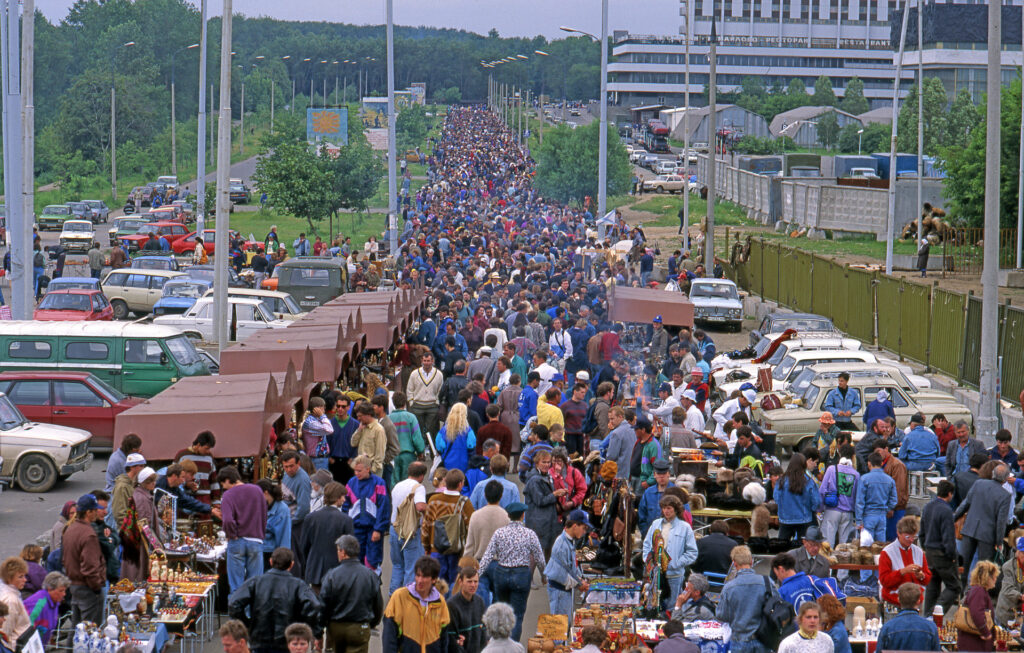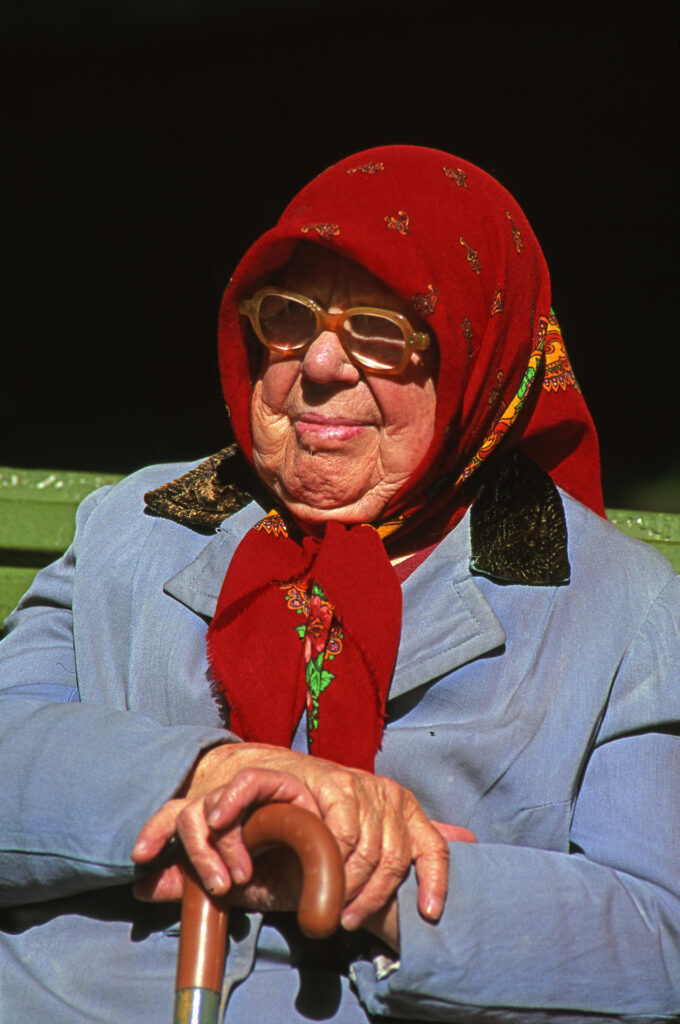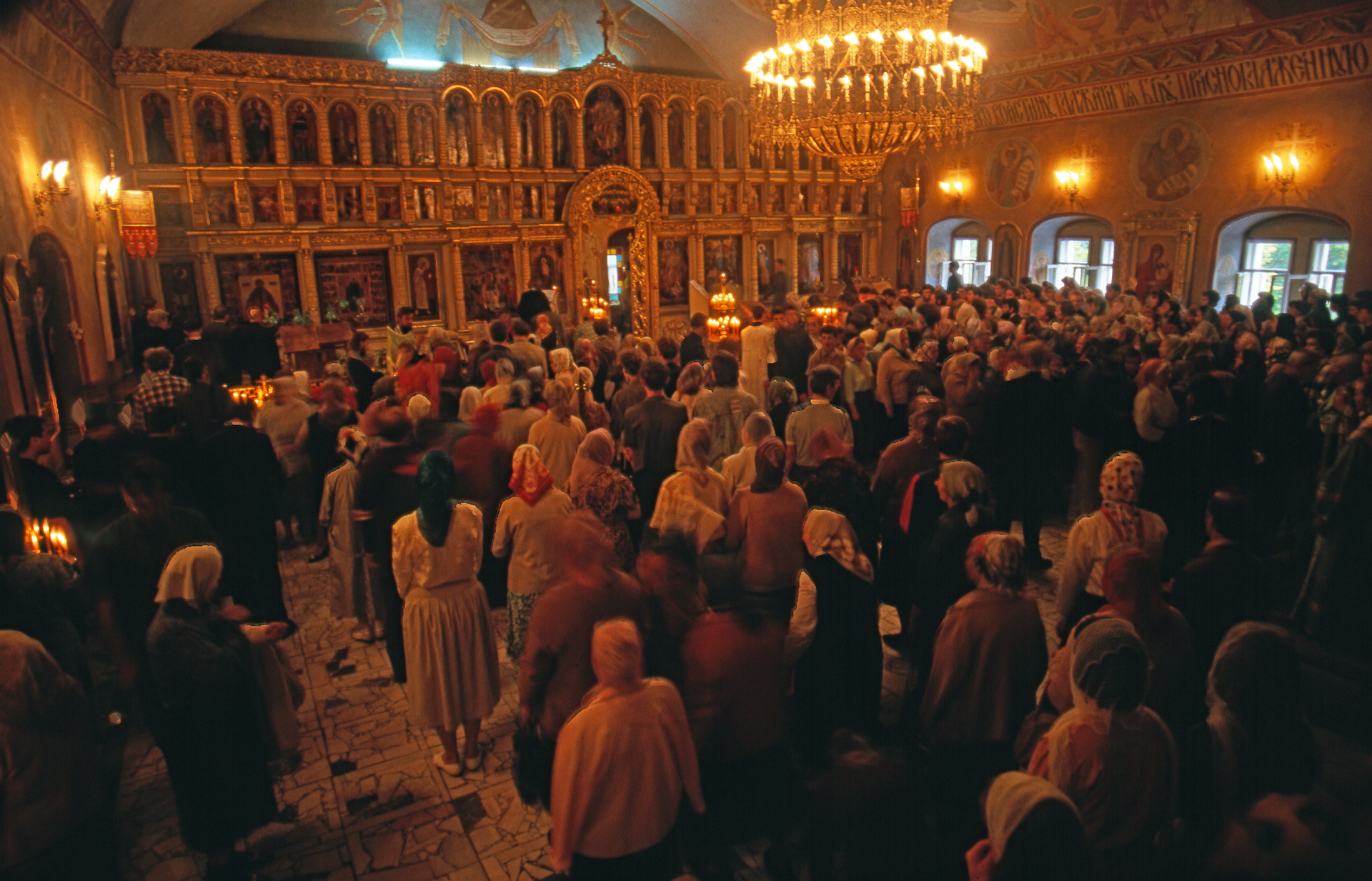Kirov Ballet
These pictures, of Kirov ballet players preparing to perform both the male and female parts of Swan Lake, were made over a two-hour period in the dressing room of the Russian National Theatre in Moscow.
I ended up here after meeting the lead dancer and choreographer in St. Petersburg, where I was working on a story about a young violinist, Mikhail Rikhter, studying at the Nikolia Rimsky Korsakov Music Conservatory and his experience with “Peristroika.” I was interested in what the newfound “freemarket”capitalism that had arrived in Russia only a few years ago meant.
I found that almost everybody in St. Petersburg was playing “Let’s Make Money,” but the biggest “beezznessmen,” are the old “Party” bosses, generals, X KGB cadre, and the Mafia clans who control the food markets and sell mandatory bomb insurance to all new businesses. It is common knowledge that every one of the hundreds of new “free-market” vendors, selling mostly imported liquor and cigarettes through the barred windows of their plastic and metal kiosks, pay for protection.
I watched gauntlets of free-enterprising people crowd train and metro stations, and pedestrian underpasses. Many are old. Their life savings deflated to nothing. Others are professionals, with worthless wages. Others are just people who have the time to buy cheap at the state run stores, and sell on the street for a small profit. They stand shoulder to shoulder in long lines, as if facing a firing squad, to exhibit whatever they are selling. One women has two dried fish, a decorated old war veteran holds a puppy, another person has a bottle of vodka for sale, and another has a purse full of canned fish, and another a telephone, and on down the line past bras, carrots, and wild mushrooms, to raw liver in a suitcase, and ice cream – which is particularly good in St. Petersburg. At high noon Nevsky Prospect is jammed with cars, many very expensive, and hoards of pedestrians. Many attempting to fashion themselves after western images, to the extent that they leave the brand label stickers on their sunglasses.
One day my interpreter asked my wife and I, if we would like to attend a “very different” ballet. I learned that this company of Kirov dancers was determined to send their own interpretation of “Peristroika” to a stiff and formally ordained orthodox audience. Men dancing “on point,” was unheard of in Russia. After the performance, there was a noticeable number of people who didn’t stand during the ovation, but they paled in comparison to the hoots of “bravo.” We were invited to a back stage party, where I met the choreographer, and dancers.
When I asked if I could photograph subsequent performances, they were more than happy to accommodate the foreign journalist. Their next performance was in Moscow at the National Theatre. I stayed in the dressing rooms until the performance was about to begin. But, the moment I tried to photograph the actual performance, which I had permission to do from the ballet company, my cameras and I were swiftly ushered out of the theatre, by two soldiers. As it turns out there was politics at play between the theatre authorities and the dance troupe. They were, or course, members of the famed Kirov Ballet, and It was one thing to let them perform live, but apparently quite another thing, as my Russian friends later told me, to “publicise the spectacle.” “There are nuances that have been cultivated for decades to circumvent oppressive politics, and the prying eyes of the KGB, “things so subtle I could not even translate them for you, says Misha, my Russian writer friend. “If you had a banned book, for example, there were ways you could talk about it so that only those who knew about banned books would understand what you were talking about.
